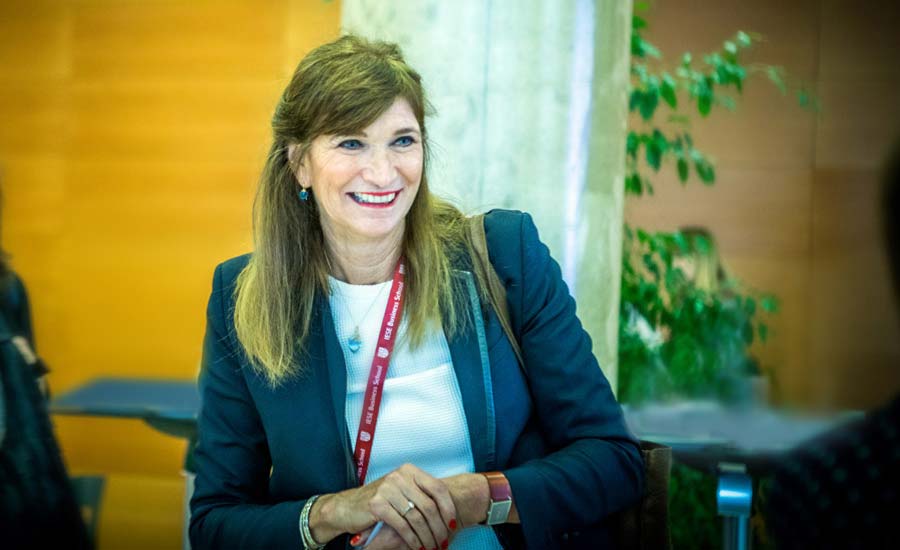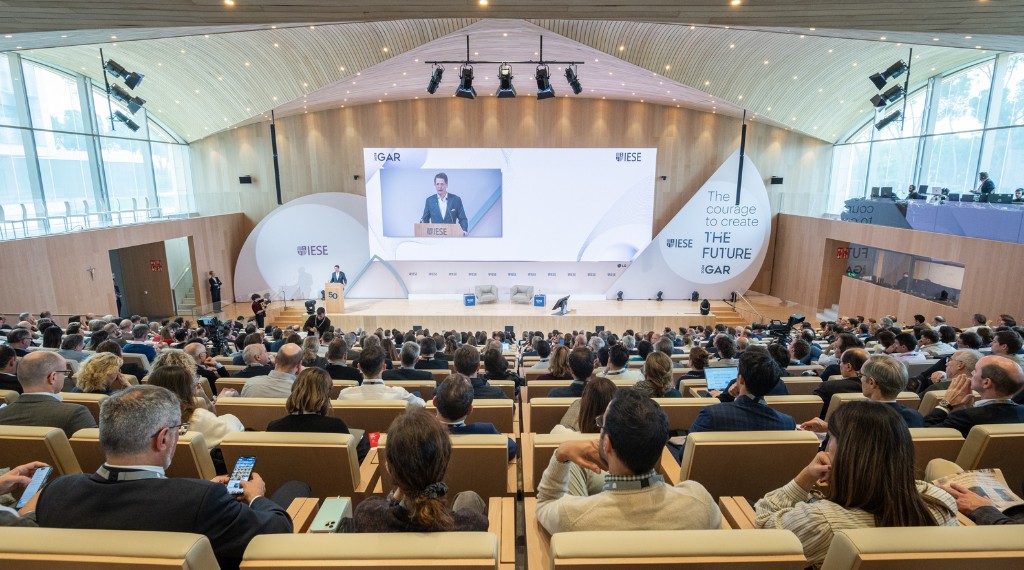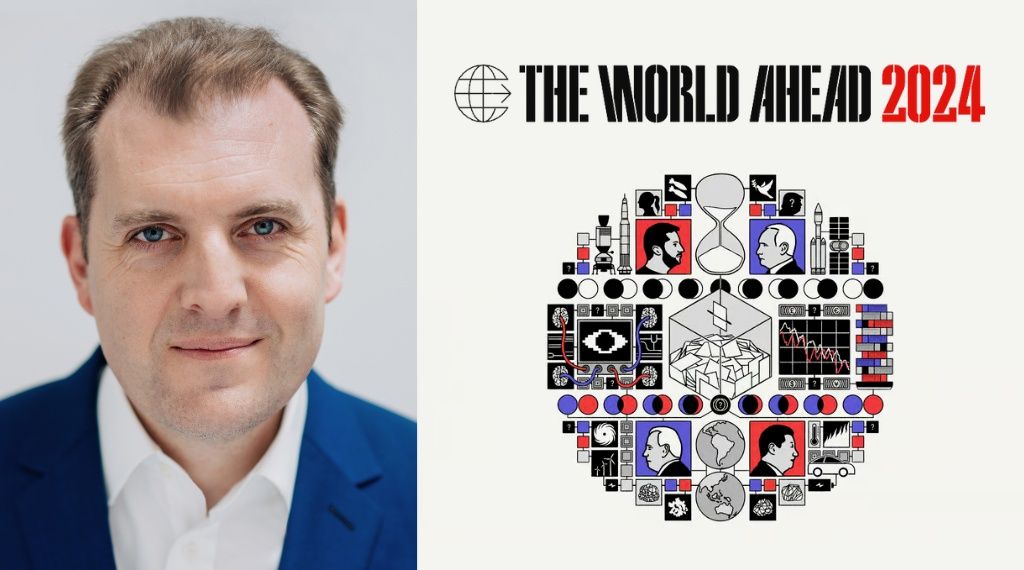Stories
Changing Times Call for New Models for Success
Business paradigms discussed at Women in Leadership Conference
January 26, 2017

30% of people involved in strategy must be under 30, says Prof. Dr. Annemieke Roobeek, so that business leaders are able to access new knowledge, insights and networking competencies.
The professor Dr. of Strategy and Transformation Management at Nyenrode Business Universiteit, and also supervisory board member at ABN AMRO Bank and KLM Royal Dutch Airlines, kicked off IESE’s 2nd Annual Women in Leadership Conference with her session on The Added Value of Inter-Generational Collaboration.
The time is now for broad-minded leadership to embrace long-term visions that stimulate innovation, inclusion and change, she said, and this includes embracing diversity.
Dealing with how organizations can work to welcome change through collaboration, Roobeeks topic was a particularly relevant springboard for the student-run conference this year focusing on the theme of Evolution: Celebrating Progress and Potential.
During his introduction, IESE’s MBA Director, Prof. Carlos García Pont commented, we have done a lot, but there still a lot to do. Through the IESE statement, A World to Change, we are assuming responsibility for this change in years to come.
Only in its second edition, the range of topics and speakers were testament to its progress. Rather than exclusively focusing on women’s issues, speakers grappled with key topics facing all business leaders today.
Microsofts Dona Sarkar and James Whittaker were among the high profile speakers, as well as IESE alumniLola Puerta from Avios, and Mª Luisa de la Peña of Gas Natural Fenosa.
While Sarkar and Whittaker gave tips on how individuals can realize their own potential and achieve personal success, Prof. Roobeeks talk addressed how business, and society as a whole, could continue to grow and succeed in changing times.
The Times are a-Changing
Having started off as the youngest female professor in her country within the traditionally male areas of Technology and Economics, Prof. Roobeek is a key figure for women in business, as well as being well-versed in the advantages of inter-generational collaboration.
Roobeek invoked the timeless words of Bob Dylan that recently won him the Nobel Prize for literature, the times are a-changing, to illustrate how a member of one generation can inspire others, five generations later.
Dylan’s words ring truer than ever now, says Roobeek, I’m not just talking about technological advancements we’re in times of systems change.
Boomers are fading out, which is good because their institutions have stuck and they are not helping us wer’e really seeing that we’ve come to the limits of existing paradigms of energy, transport etc. And this is when you see universities coming up with bright new solutions.
Of course, not everyone is welcoming these paradigm shifts with open arms. Institutions are pushing back the change; they don’t want it because they have vested interests, explains the professor. This, argues Roobeek, is what the fossil fuel industry is currently doing when they attempt to prolong the transition to renewables.
Circular Eco-systems: The Way Forward
But we should not halt at the laggard vested interests in the pursuit of change says Roobeek, who is currently working on models for circular, multi-helix, eco-systems to accelerate rather than delay change.
Tech is not the answer, she argues, the key thing is to organise everything in different ways. Currently organization is siloed, but we cannot do system change alone. We need to take advantage of collaboration and for this we need a challenge, and not a company, in the middle.
For example, in the area of health where the consumer, and their challenge to stay healthy, sits at the center.
Leaders Should Listen, Not Lag
In the new paradigm egos are out they are so old fashioned and 80s, says Roobeek, and collaboration is in. Such a shift not only requires collaboration between companies and institutions but also the generations within them.
Founder and director of her own enterprises, including MeetingMoreMinds, this is why Roobeek strongly advocates working with younger people. Not only does this keep you young at heart, but it also forces you to listen.
In most companies, explains the professor, as people get older they think they can stop doing this. But the opposite is true it’s important for leadership to keep listening.
Getting Hardwired for Success
In their interactive session, Hardwired for Success, the Microsoft representatives also expounded the importance of millennials. Millennials are more powerful. As a company we’re looking for them because we need a fresh perspective.
Millennial or not, the duo held forth on practical steps anyone can take to live and succeed on purpose in today’s business environment.
The work life balance no longer exists, argues Tech Evangelist Whittaker. It used to exist in our parents day but not now we all carry around these tiny screens. I do personal things at work, and work things at home.
What is more important now, they say, is how to achieve work life in balance. This is when you think: I can’t wait to go to work and solve problems today, says Sarkar, a principal program manager at Microsoft, as well as a self-published author.
Achieving Work Life in Balance
To be fulfilling, your job must use your skills, give you autonomy and be important to you. For example, says Whittaker, The first few years of a job are great as you bring a fresh perspective to a company and are praised for it, but then, if you don’t get autonomy, you hit a wall.
If your job doesn’t encompass all of the above, they identify a number of routes you could take. One option, says Sarkar, is to use your day job as venture capital for your side-hustle. Because not all elements have to be fulfilled in one job for example, when I didn’t have my dream job, I used to write fiction in my spare time.
Whittaker, on the other hand, backs creating your dream job: focus on what you like, get really good at it and then make it your full time job. For example, I no longer had to fix bugs when I showed how good I was at finding them.
Sarkar and Whittaker agree that if you’re looking to switch careers, you need to find your it (something you are truly interested in), get good at it, and live it. But to do this you need to discover exactly who you are. If you don’t know who you are, how are you going to take the right decisions?


